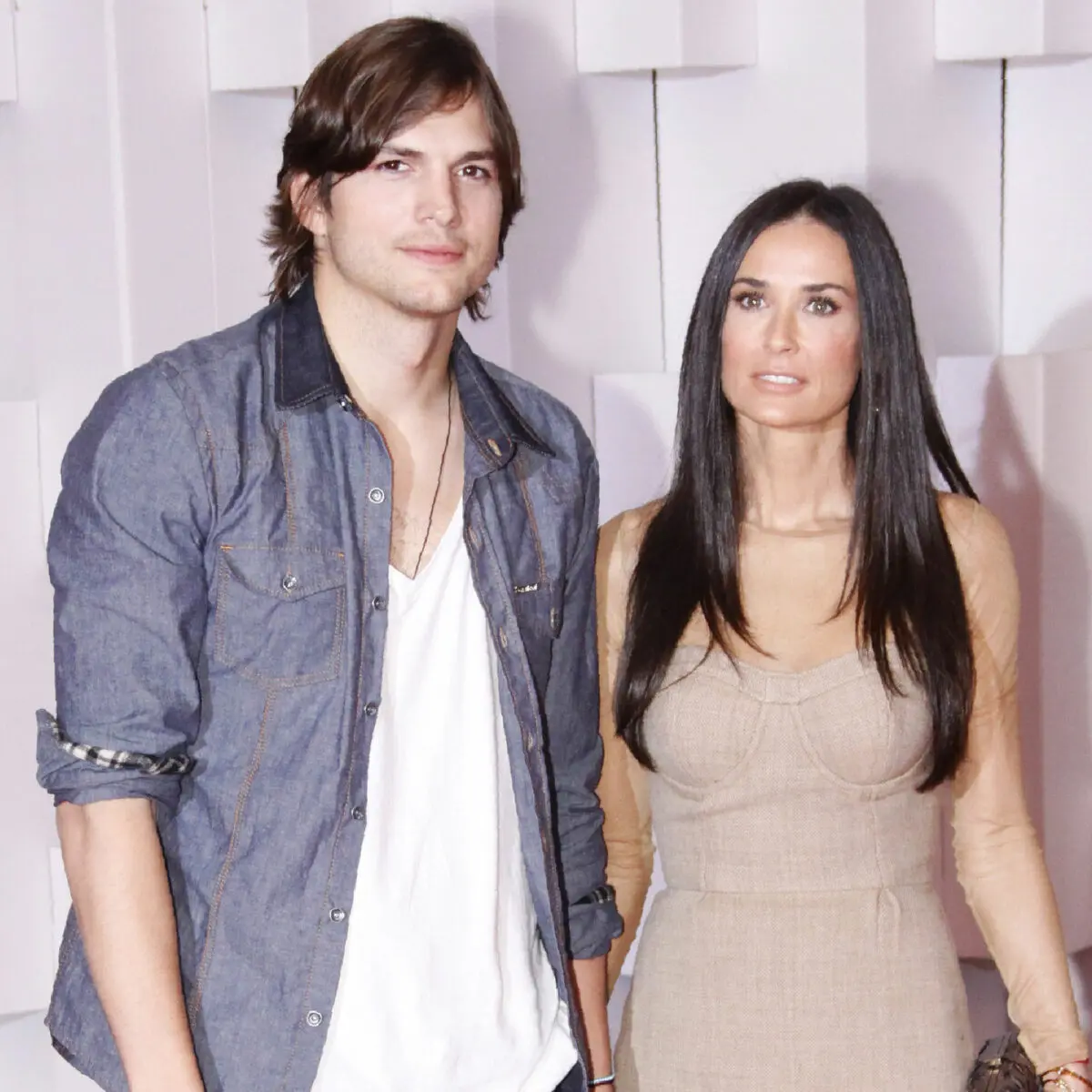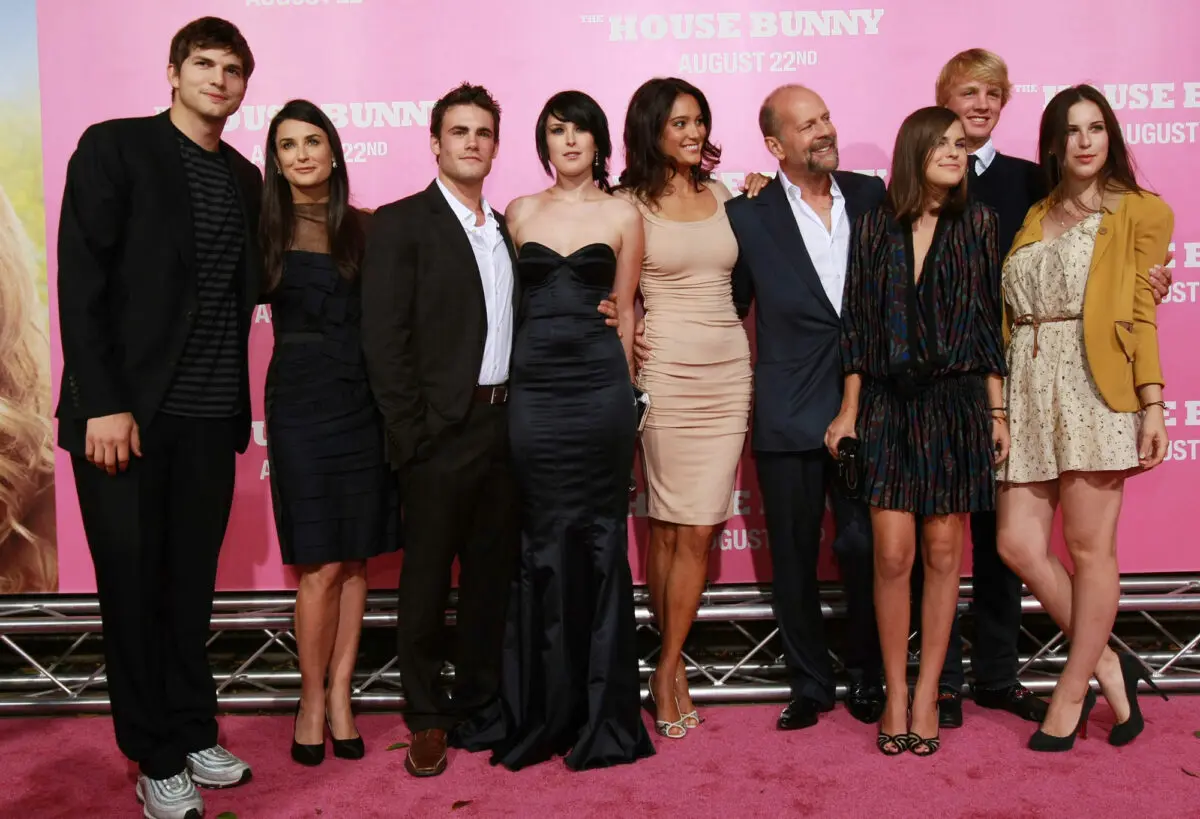In a candid revelation on social media, Tallulah Willis, the youngest daughter of Bruce Willis and Demi Moore, shared her personal experiences growing up in a blended family, particularly her relationship with her ex-stepfather, Ashton Kutcher. Her comments emerged in response to a post by Gwyneth Paltrow discussing the complexities of stepparenting. This interaction not only shed light on the challenges faced by children in famous families but also highlighted the importance of open conversations about family dynamics.
Tallulah Willis and the Realities of Blended Families
Tallulah, who is now 31, has taken part in a broader discussion regarding family relationships in contemporary society. In an age where blended families are increasingly common, her insights can be invaluable. Growing up in the limelight, she experienced the ups and downs of a family structure that involved multiple parental figures. The complexities of these dynamics often become magnified in the public eye, leading to both personal and familial challenges.

Understanding the Role of Stepparents
Stepparents can play a significant role in the lives of their partner’s children. For Tallulah, living with Ashton Kutcher from the age of 11 until his divorce from her mother in 2013 had a lasting impact. Tallulah’s reflections on her relationship with Kutcher provide insight into how step-relationships can evolve over time. Here are some key points regarding the roles of stepparents in modern family dynamics:
- Support Systems: Stepparents can offer emotional and practical support, enhancing the family structure.
- Complex Emotions: Children might feel a mix of love and resentment towards a stepparent, especially during transition periods.
- Open Communication: It is crucial for families to maintain an open dialogue about expectations and feelings.
- Building Bonds: Time and personal experiences shared can strengthen relationships, turning tension into trust.
Using her unique perspective, Tallulah emphasized that “there’s room for everyone” in a blended family. This statement encapsulates the notion that no one needs to be the ‘bad guy’ in a situation for it to heal and flourish.
Public Statements and Personal Growth
Tallulah’s recent comments come at a time when conversations about mental health, self-discovery, and public perceptions of family structures are paramount. Growing up with celebrity parents, she has always been in the public gaze, which has influenced her approach to personal revelations and mental health challenges. She reflected on her formative years, noting, “I really went inside of myself, and that did send me into a total dumpster fire and I’m still unpacking.” This honesty regarding her struggles is a powerful call for greater awareness around mental health in famous families.
Coping Mechanisms in Famous Families
Famous families often deal with heightened scrutiny surrounding their relationships. For Tallulah, her journey in navigating the complexities of blended family dynamics has been influenced by her unique upbringing. Here are some coping mechanisms that can help families like hers:
- Therapy and Counseling: Seeking professional help can provide tools for communication and conflict resolution.
- Support Networks: Relying on friends and extended family members for support can ease feelings of isolation.
- Creative Outlets: Engaging in creative activities can serve as an emotional release and a form of self-expression.
- Mindfulness and Self-Care: Practicing mindfulness techniques can help manage anxiety and promote overall well-being.
The Journey of Self-Discovery
Tallulah Willis’ insights and experiences illustrate a journey of self-discovery that many individuals can relate to. Growing up in a blended family context often requires children to grapple with their identities in unique ways. The world of celebrity can complicate this process, leading to struggles that are not easily visible to the outside world.

Building an Identity Beyond Family Names
For individuals in the limelight, establishing a personal identity that is separate from family connections can be challenging. Tallulah has made significant strides in defining her path, embracing her creativity and individualism in the shadow of her parents’ fame. Some strategies for building an independent identity include:
- Exploring Personal Interests: Pursuing hobbies and passions helps individuals stand out on their own.
- Personal Branding: Crafting a unique personal brand can empower individuals to carve a niche in their respective fields.
- Community Engagement: Connecting with like-minded individuals fosters a sense of belonging beyond family.
- Education and Personal Growth: Investing in oneself through education can positively impact self-esteem and future opportunities.
Influencing Future Generations
Tallulah’s willingness to discuss her past and challenge stigmas surrounding mental health and family dynamics will undoubtedly influence others. By sharing her story, she is paving the way for future generations to embrace their experiences openly and seek support when needed. Public figures can play a vital role in fostering understanding, especially when they choose to be vulnerable about their journeys.
The Dynamics of Celebrity Relationships
Ashton Kutcher and Demi Moore’s marriage, despite its ending, provides an intriguing case study of celebrity relationships and their impact on family structures. Married for eight years, Kutcher embodied the role of a father figure to Moore’s daughters during their formative years. The nuances of celebrity life, including media scrutiny, can affect family ties and foster unique challenges.

The Influence of Media on Relationships
In the world of celebrity, media speculation can place immense pressure on relationships. This influence often leads to misinterpretation of personal events, affecting how families navigate their issues in public. Tallulah’s reflections on her upbringing resonate with those who have faced similar challenges outside the spotlight. Here are the ways media influences relationships:
- Public Scrutiny: Media coverage can create undue stress, impacting the mental health of those involved.
- Perpetuation of Stereotypes: Celebrities may face stereotypes that do not align with their realities, complicating their personal relationships.
- Increased Expectations: Celebrity status can set unrealistic expectations for families, leading to disillusionment.
- Lack of Privacy: Constant monitoring by the media can hinder the ability to resolve issues privately.
Personal Reflections on Family Relationships
Both Tallulah and Ashton have publicly acknowledged their affection for one another over the years despite any familial transitions. In a 2020 discussion, Kutcher emphasized that he will always love and respect his former stepdaughters. Such sentiments underscore the idea that family bonds can transcend traditional definitions, allowing for a reimagining of relationships.
| Relationship | Emotional Impact | Key Takeaway |
|---|---|---|
| Tallulah and Ashton Kutcher | Positive co-existence and mutual respect | Family connections can endure change |
| Demi Moore and Bruce Willis | Supportive collaboration as co-parents | Co-parenting can foster healthy family dynamics |
| Ashton Kutcher and Mila Kunis | Creation of a new family unit | New partnerships bring new challenges and joys |
The journey of evolving family relationships has gradually transformed the way we perceive stepparenting. Tallulah Willis’ reflections illuminate a path toward acceptance, highlighting that healing is a collaborative process. As she navigates her identity and the complexities of familial bonds, her story encourages others in similar situations to seek understanding and compassion.
Hi, I’m Sarah, a 30-year-old journalist with a passion for storytelling and uncovering the truth. I strive to bring important issues to light and connect with my audience through compelling narratives.



